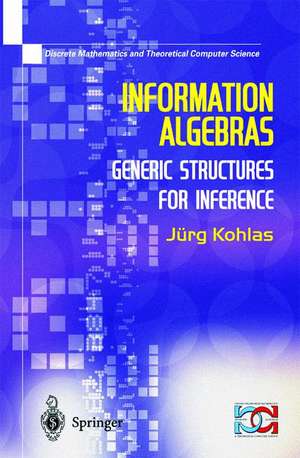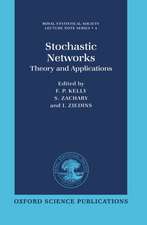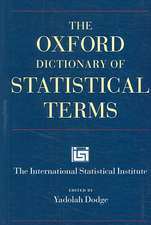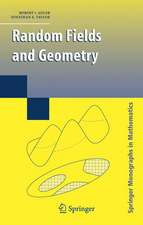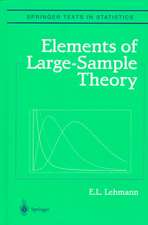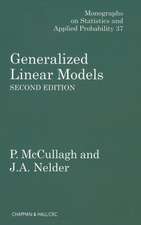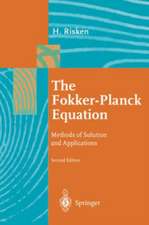Information Algebras: Generic Structures For Inference: Discrete Mathematics and Theoretical Computer Science
Autor Juerg Kohlasen Limba Engleză Paperback – 5 dec 2002
Preț: 725.92 lei
Preț vechi: 885.27 lei
-18% Nou
Puncte Express: 1089
Preț estimativ în valută:
138.92€ • 144.50$ • 114.69£
138.92€ • 144.50$ • 114.69£
Carte tipărită la comandă
Livrare economică 15-29 aprilie
Preluare comenzi: 021 569.72.76
Specificații
ISBN-13: 9781852336899
ISBN-10: 1852336897
Pagini: 280
Ilustrații: X, 265 p.
Dimensiuni: 155 x 235 x 15 mm
Greutate: 0.4 kg
Ediția:Softcover reprint of the original 1st ed. 2003
Editura: SPRINGER LONDON
Colecția Springer
Seria Discrete Mathematics and Theoretical Computer Science
Locul publicării:London, United Kingdom
ISBN-10: 1852336897
Pagini: 280
Ilustrații: X, 265 p.
Dimensiuni: 155 x 235 x 15 mm
Greutate: 0.4 kg
Ediția:Softcover reprint of the original 1st ed. 2003
Editura: SPRINGER LONDON
Colecția Springer
Seria Discrete Mathematics and Theoretical Computer Science
Locul publicării:London, United Kingdom
Public țintă
ResearchCuprins
1 Introduction.- 2 Valuation Algebras.- 2.1 The Framework.- 2.2 Axioms.- 2.3 Examples of Valuation Algebras.- 2.4 Partial Marginalization.- 3 Algebraic Theory.- 3.1 Congruences.- 3.2 Domain-Free Valuation Algebras.- 3.3 Subalgebras, Homomorphisms.- 3.4 Null Valuations.- 3.5 Regular Valuation Algebras.- 3.6 Separative Valuation Algebras.- 3.7 Scaled Valuation Algebras.- 4 Local Computation.- 4.1 Fusion Algorithm.- 4.2 Collect Algorithm.- 4.3 Computing Multiple Marginals.- 4.4 Architectures with Division.- 4.5 Computations in Valuation Algebras with Partial Marginalization.- 4.6 Scaling and Updating.- 5 Conditional Independence.- 5.1 Factorization and Graphical Models.- 5.2 Conditionals in Regular Algebras.- 5.3 Conditionals in Separative Algebras.- 6 Information Algebras.- 6.1 Idempotency.- 6.2 Partial Order of Information.- 6.3 File Systems.- 6.4 Information Systems.- 6.5 Examples.- 6.6 Compact Systems.- 6.7 Mappings.- 7 Uncertain Information.- 7.1 Algebra of Random Variables.- 7.2 Probabilistic Argumentation Systems.- 7.3 Allocations of Probability.- 7.4 Independent Sources.- References.
Caracteristici
For the first time the common, abstract and unifying algebraic structure underlying different inference algorithms as used in Bayesian networks, possibility theory, Dempster-Shafer theory, logic, linear systems (sparse matrices) is presented in book form Includes supplementary material: sn.pub/extras
